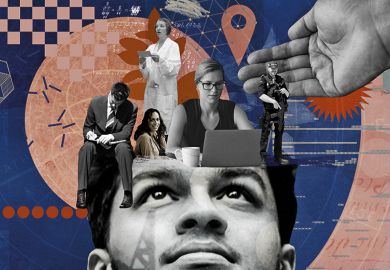After 20 years of working in the hospitality industry and education, I still sometimes come across a misconception that hospitality is all about hotels and restaurants, and that an education in hospitality must therefore focus on the rather narrow topic of how to run these establishments. In fact, hospitality management education takes a blend of liberal arts, business and culinary school curricula to prepare graduates with the skills to become successful managers and leaders.
The Swiss model of education has long embraced both academic and vocational learning, and Swiss hospitality institutes remain at the forefront in combining the best of these two approaches. Since its founding in 1962, Glion Institute of Higher Education (where I am managing director) has focused on balancing practical immersion with management theory. We have found that this blended model best enables students to successfully make the transition from classroom learning to real-world application.
At Glion, our bachelor’s degree students spend their first semester immersed in practical arts workshops to gain first-hand knowledge of hospitality operations. But it also enables students to deepen their understanding of business and psychology and to explore topics such as luxury culture, gastronomic traditions and hospitality trends and innovations, including sustainability and wellness.
The operational know-how and confidence that students gain through practical arts immersion provides a strong foundation for the rest of their education. Business studies, of course, are key to preparing students for managerial roles. Through a curriculum that includes finance, accounting and statistics, students gain a well-rounded business perspective, but also learn how to apply business theory to the hospitality industry. While studying marketing, students have the opportunity to focus on this subject from the perspective of luxury hospitality, exploring topics such as storytelling, luxury brand identity and the delivery of experiences.
While these practical skills and business acumen may seem like the bread and butter of hospitality, the liberal arts play an important role in developing successful hospitality management graduates. Courses focused on self-expression, writing and presentation skills enable students to develop the critical thinking and communication skills needed in any profession. Meanwhile, by learning alongside classmates from more than 90 countries, students naturally develop cross-cultural communication skills and expand their worldview. These are all crucial traits to nurture in students preparing for international careers in a people-centric industry.
By including courses in foreign languages, psychology, theatre and design within the curriculum, we ensure that hospitality students broaden their perspective and encourage them to make connections between disciplines – for example, by considering how design may influence a new restaurant concept, or how principles of theatre may play out in guest interactions.
This exposure to diverse fields of study allows students to develop their creativity and lateral thinking. Meanwhile, developing a broader worldview is also important to tackling topics such as business ethics and corporate social responsibility – issues that are increasingly relevant in the modern business world.
Demand for hospitality talent is on the rise – this vibrant, fast-growing industry currently supports 313 million jobs, or one in 10 jobs on the planet, and the World Travel & Tourism Council estimates that 100 million new jobs will be created by 2028. For hospitality management graduates, the industry offers a wide array of career opportunities, but an education that delivers practical experience, business expertise and a global perspective is vital to professional success.
Georgette Davey is managing director of Glion Institute of Higher Education.
Register to continue
Why register?
- Registration is free and only takes a moment
- Once registered, you can read 3 articles a month
- Sign up for our newsletter
Subscribe
Or subscribe for unlimited access to:
- Unlimited access to news, views, insights & reviews
- Digital editions
- Digital access to THE’s university and college rankings analysis
Already registered or a current subscriber?


